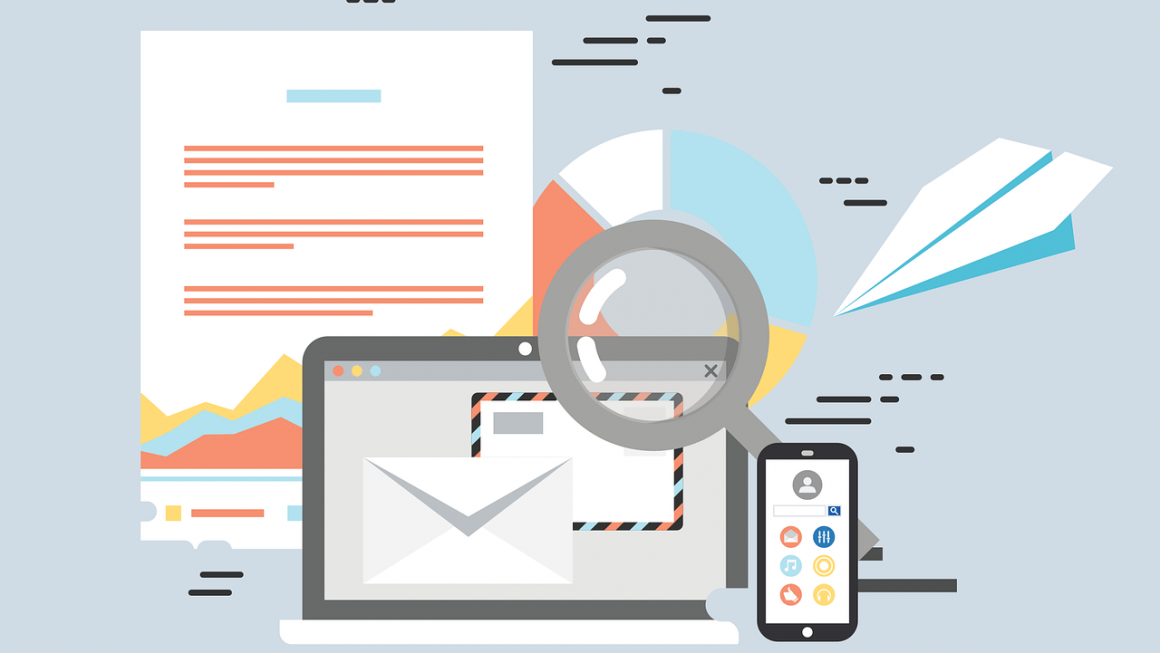Imagine living in a world without Google. We know it’s almost impossible especially after bearing witness to the effect that the ‘search engine extraordinaire’ has had on our everyday life.
Not simply content with being our primary source of information, Google has branched out into various other fields, causing disruption in everything that it touched. Marketing, in particular, is a field that has been significantly affected by Google.
There was a time when marketing was driven solely on the strengths of arresting visuals and witty copies. Companies had to turn to agencies for marketing insights, drafting media buying strategies, and developing creatives.
Also Read: Qualities That An SEO Expert Must Have
Even with the information available, in most cases, the success of campaign depended on calculated risks. There was no way to know if the campaign had been a success or a failure until the sales figures started coming up.
The digital revolution changed all of that. Marketers were no longer solely responsible for campaign development; they were now ‘the custodians of the brand.’
With the tools that they had at their disposal, marketers transformed into an essential part of a business. They kept track of business performance, created customer journeys, developed marketing communications, and devised a long-term business strategy.
Best Google Marketing Tools You Should Be Using
As we mentioned previously, this shift in role became possible because of the emergence of various marketing tools, many of which have been developed by Google. Let’s take a look at some of these tools:
1. Google Analytics
Nowadays, it’s rare to find a business that does not have a website. It has especially become essential in current times when majority of people have no choice but to stay at home and rely on e-commerce.
Statistics have shown that in the year 2020, there will be a significant decline in retail shopping as more and more customers turn to e-commerce. This shift in consumer base will result in an 18% increase in e-commerce.
With the massive shift in customer buying habits, it’s only natural that businesses would want to keep traffic on their website. For this, they need Google Analytics.
Read Also: Cancel Linkedin Premium on Iphone
Google Analytics is a free tool that is useful for keeping track of website analytics. You can use this tool to extract information like user demographics, interests, and behavior.
Google Analytics also provides performance-related data like user acquisitions, website speed, and real-time activity.
To better understand how Google Analytics works, consider the following example: suppose your website consists of details regarding packages offered by different internet providers. You want to find out how the web page that features details regarding internet service provider like AT&T is performing. Through Google analytics, you can find out the locations of customers of this product, what devices they are using to access the web page, and the amount of time they spend on the web page.
Google Analytics also lets you know how many people abandoned the shopping process after adding a product to the cart. You can use this information to run retargeting campaigns.
Since Google analytics lets you keep track of your website in real-time, you can use this tool to keep track of fluctuations in web site traffic and identify areas that require improvements.
Related: Top 5 Major SEO Problems With New Website
2. Keyword Planner
As the name suggests, keyword planner is a research tool that is useful for getting insights regarding a specific keyword or a phrase. It also provides you with keywords for search results along with additional information such as search volumes for a keyword, based on country and language.
Marketers have the option of going for either the paid or unpaid version of this tool. Just remember that in the case of the latter, the amount of information and insights you get will be limited.
3. Google Ads
Formerly known as AdWords, Google ads is a tool that allows you to create ad campaigns on Google, YouTube, and various other mobile apps. You can also use this tool for remarketing campaigns on third party websites.
With Google Ads, you can create landing pages, brief advertisements, video content, product listing, and services offerings. You can also use Google Ads for driving app installations.
Marketers who create Google Ad campaigns have the option of choosing one out of three pricing models: PPC, CPA and CPM.
The PPC model is ideal for marketers who want to increase traffic on their websites. The CPA model is the go-to choice for marketers who aim to acquire new customers, and the CPM model is the choice of marketers who want to generate awareness for their business.
4. Search Ads 360
Search Ads 360 is an ads serving platform that works in stark contrast to Google Ads in the sense that it allows marketers to manage and distribute ads that appear on websites for which they have negotiated media space.
It allows you to save time and keep track of ad performance on different platforms. The data you have available is useful for optimizing campaign performance and increasing your overall ROI.
This tool also provides you with multiple bidding strategies that you can use to achieve desired results. For example, if your objective is to get conversions, you can opt for CPA. Similarly, if your goal is to generate revenue, you will use ROA or ERS.
5. Google AdSense
Want to make money from the content you post on your YouTube channel? You are going to need Google AdSense to achieve that goal. Google AdSense is a tool that lets you earn money by posting ads on your website and your YouTube channel through Google network.
6. Google My Business
You need to register with Google My Business to improve your local SEO ranking. Since Google Maps and Google My Business are interconnected, whenever someone will use Google to search for your business, or businesses similar to yours, the name of your company, along with its location details, will show up in the search results.
With GMB, you can also provide additional information about your business such as name, address, phone number, operational hours, and website details.
Businesses also have the option of adding social profiles along with customer reviews to GMB snippets that appear on search engines.
7. Google Trends
In a fast-paced digital world, you need to keep up with what’s happening around you. With the help of Google trends, you can assess popularity and relevance of a specific keyword or topic on the internet. Users have access to all the relevant information in the form of graphs.
You can use these graphs to compare data across different regions and evaluate the evolution of a keyword/trend over the years.
The tool is also useful for identifying seasonal trends. With this information, you can develop content accordingly and make the most out of your campaigns.
8. Google Alerts
Much like Google trends, Google Alerts lets you keep track of what’s happening around you. The only difference is that you will have to input details such as topics that you are interested in to get regular alerts. You can customize settings for all alerts.
As a marketer, you need to keep track of what people have to say about your brand’s performance. You also need to have an idea regarding what your competitors are doing. With Google Alerts, you can achieve all of this and so much more.
Google It!
The tools mentioned above help ensure that marketers, and the general population readily have access to all the information they might require.
The goal of a marketer is to gain customer insights and provide them with exactly what they want. By leveraging Google marketing tools, you can leverage the information at your disposal for creating superior campaigns and ensuring a higher return on investment for the business.




